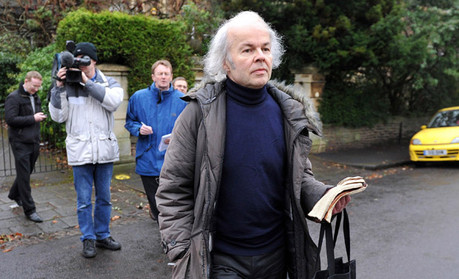
Chris Jefferies, who successfully sued eight newspapers for damages after his release. Image: Tim Ireland/PA
Chris Jefferies, the landlord of Joanna Yeates who was arrested on suspicion of her murder but later released, told Radio 4’s Today programme this morning that he was “very disturbed” by the “extraordinary tissue of fabrications” published by the press following his arrest.
Jefferies was appearing on the programme to talk about his work with the Hacked Off campaign to exclude privacy and defamation cases from proposed government reforms to conditional fee agreements (CFAs), otherwise known as “no-win-no-fee” agreements.
After his release Jefferies successfully sued eight newspapers – the Sun, Daily Mirror, Sunday Mirror, Daily Mail, Daily Star, Daily Express, Daily Record, and the Scotsman – for damages. Two of the titles – the Sun and the Daily Mirror – were also successfully prosecuted by attorney general Dominic Grieve for contempt of court.
Jefferies told the today programme that during his time in custody he had been unaware of his treatment at the hands of the press, which had caused Grieve to issue a warning to all news outlets over possible contempt.
The landlord said that the press had had “a field day” with his reputation and said he had “become a household name for all the wrong reasons”.
Arguing against the proposed CFA reforms, Jefferies claimed that there is “absolutely no question that I would not have been able to take the action I did against the newspapers” if no-win-no-fee agreements were restricted. He went on to say that access to justice would be “undoubtedly denied” to victims of libel or privacy intrusion if reform went ahead.
I think there is absolutely no question that I wouldn’t have been able to take the action that I did because at the moment, one is able to take out a conditional fee agreement and that means that the lawyer’s success fees, which are a percentage of the total legal costs of taking the action, will be paid by the other side and one won’t be responsible for those.
Because these cases can be dragged out over considerable periods of time, particularly if they go to court, then legal fees are astronomic. One couldn’t begin to potentially expose oneself to the risk of having to pay tens if not hundreds of thousands of pounds in advance.
Precisely for that reason I felt I had no other course but to take the legitimate action that was recently concluded against the eight newspapers.
Jefferies’ solicitor, Louis Charalambous, said after damages were awarded that the newspapers were paying them “knowing that once the conditional fee agreement rules are changed next year victims of tabloid witch hunts will no longer have the same access to justice.”
Yeates neighbour, Vincent Tabak, was convicted of her murder last week and sentenced to a minimum of 20 years in prison.